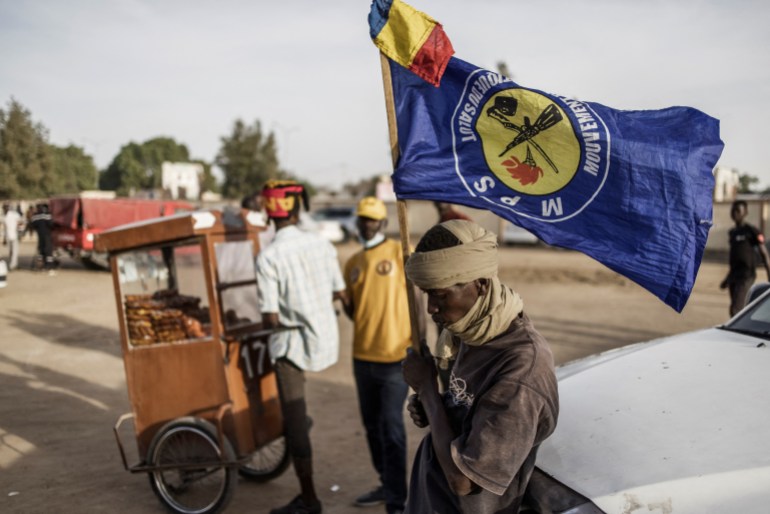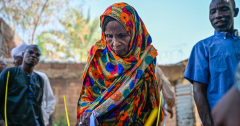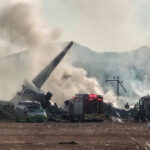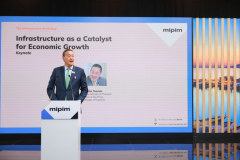Chadians are voting in parliamentary, regional and municipal elections for the first time in more than a decade, continuing the former military-turned-civilian government’s push to put the Central African country on a democratic path. But opposition party members are sceptical.
Officials in N’djamena say Sunday’s vote will formally end a three-year “transitional period” that followed the 2021 death of longtime leader Idriss Deby Itno and the forceful takeover by his son, Mahamat Idriss Deby, who was confirmed as the country’s president after an election in May.
However, many opposition parties are boycotting the polls, calling them a “masquerade” and accusing the Patriotic Salvation Movement (MPS) government of trying to legitimise what they call a political dynasty.
Chad, one of Africa’s poorest countries, is the first in a string of coup-hit states in the Sahel to hold elections as promised, even if polls were severely delayed. The country is no stranger to coups or repressive governments and has been ruled by the Deby family since 1991.
Sunday’s vote comes amid a barrage of security challenges: Sudan’s war is raging along the eastern border; the Boko Haram armed group is attacking security locations around Lake Chad; and N’Djamena recently broke a military pact with former colonial master and strong ally, France.
Rights groups say without full opposition participation, the election is not likely to be fair.
“It will be difficult to have a credible election without inclusivity,” Isa Sanusi, Amnesty International’s country director in neighbouring Nigeria, told Al Jazeera. “That some are boycotting the election shows that there must be a review of the process and system to ensure that a level playing field is provided to accommodate all Chadians.”
Here’s what you need to know about the parliamentary elections and why the country’s fledgling steps towards democracy are controversial:

How will voters elect?
- Some 8.3 million registered voters of the country’s 18-million population will vote for legislators in the country’s 188-seat parliament. Parties need 95 seats for a majority.
- More than 100 political parties have put forward some 1,100 candidates for the parliamentary elections. Winners are elected by a first-past-the-post or a more-than-half majority method, depending on the constituency size.
- Voters will also choose regional and local governments across 22 regions and the capital, N’Djamena.
- The Transformers Party, as well as dozens of other opposition parties, are boycotting the elections, arguing that the vote will neither be free nor fair.
Why were there no parliamentary elections in more than a decade?
Parliamentary elections were last held in 2011. Although the term for the legislators was meant to end in 2015, the government indefinitely postponed polls, claiming there were no funds to organise elections.
Although the landlocked country is an oil producer, it ranks fourth from the bottom in the United Nations Human Development Index due to years of stagnant economic activity and harsh climate conditions.
Despite a clamour by opposition members to hold the elections promptly, former President Deby continued to postpone them. In 2019, the newly established National Independent Electoral Commission (CENI) finally promised to hold elections in 2020. However, the COVID-19 pandemic disrupted those plans.
Following his father’s death at the hands of rebels in May 2021, General Mahamat Idriss Deby, 40, seized power, despite loud calls for elections from opposition parties. The military disbanded parliament and put a one-year Transitional Military Council in place, headed by Deby. In October 2022, the leader disappointed many Chadians when he extended the transition period to 2024. Thousands, especially youth, took to the streets in protest, but security forces opened fire on them, killing more than 100 people.
Succes Masra, the young leader of the opposition Transformers Party, was at the forefront of the protests. Masra fled to the United States following the killings.

Have there been other elections?
Yes, authorities held a successful referendum in December 2023 that supported a new constitution and, in effect, new elections.
In May this year, Deby swept to victory in controversial presidential elections, amid claims his party rigged the vote with the help of the National Election Management Agency (ANGE).
Critics also accused Deby of murdering opposition candidates before the elections. Chadian security forces killed Yaya Dillo, Deby’s cousin and a leading opposition member of the Socialist Party Without Borders (PSF) in February. He was widely seen as the president’s biggest challenger at the time.
Officials claimed Dillo led a deadly attack on the headquarters of the country’s intelligence agency on February 28, but Dillo denied the allegations. Dillo was killed in a shootout the following day, along with several other PSF members. Many members are still detained in the notorious Koro Toro maximum security prison, according to Amnesty International. Organisations like Human Rights Watch in 2022 documented how prison officials tortured and murdered detained protesters in the facility.
Deby won 61.3 percent of the vote to the anger of opposition groups who




